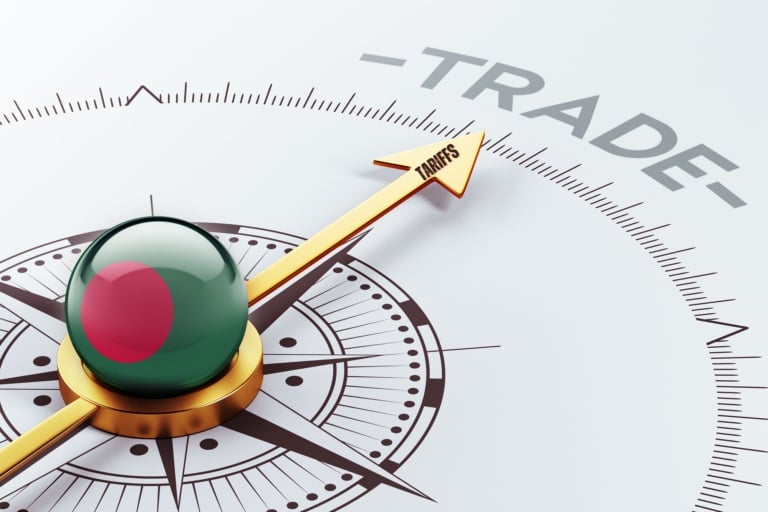May 19, 2025 | 12:13 GMT +7
May 19, 2025 | 12:13 GMT +7
Hotline: 0913.378.918
May 19, 2025 | 12:13 GMT +7
Hotline: 0913.378.918

Trump, who has accused various countries of becoming rich at the expense of Americans, has now introduced import tariffs. Photo: Canva.
Although they have been in the air for some time, the tariffs have hit like a bombshell. The levy will come into effect on Wednesday 9 April. The European Commission is now preparing a package of countermeasures.
Chairman Ursula Von der Leyen calls the announced tariffs ‘a major blow to the global economy’. All scenarios for a European counter-reaction are on the table. For possible counter-tariffs, the European Commission would look at industries where it hurts the US and where the EU has alternatives. Soy from Brazil is specifically mentioned. Meanwhile, European farmers do not want the EU to retaliate against Trump’s import duties. The European umbrella organisation Copa-Cogeeca hopes that the EU will negotiate with the US to prevent a trade war.
Copa President Massimiliano Giansanti said in a press release: “Retaliatory trade measures will not benefit farmers in either the EU or the US. Instead, they will limit our opportunities, raise prices, and weaken the resilience of agricultural businesses. We call on both administrations to prioritise negotiations and explore all diplomatic avenues before resorting to measures that could have long-lasting consequences.”
There are also concerns from farmers in America. The American Farm Bureau Federation (AFBF) emphasises that trade is critical to America’s farmers. Tariff increases threaten the economic sustainability of farmers, who have lost money on their staple crops over the past 3 years.
More than 20% of farm income comes from exports and farmers are highly dependent on imports for key supplies such as fertiliser and specialised tools. The AFBF foresees long-term damage from loss of market share for American farmers.
President Donald Trump came up with different tariffs for each trading partner. They range from a basic levy of 10% for all countries, including the United Kingdom, to 34% for China and 49% for Cambodia, a country that produces and exports a lot of cheap clothing. According to Trump, the 20% for products from the EU is still low compared to what the EU would levy on American products. The levies are in addition to previously imposed rates for aluminium and steel, among other things.
Trump accused other countries of ‘looting’ and ‘robbing’ the US and becoming rich at the expense of Americans. He promised to rapidly build up American industry and to break down trade barriers in other countries with the new import duties.
Economist Theo Smid of Atradius tells ANP new agency: “If this trade war escalates further, open economies will suffer the consequences. This could lead to an increase in the number of bankruptcies worldwide and a slowdown in economic growth.”
(Poultryworld)

(VAN) Fourth most important food crop in peril as Latin America and Caribbean suffer from slow-onset climate disaster.

(VAN) Shifting market dynamics and the noise around new legislation has propelled Trouw Nutrition’s research around early life nutrition in poultry. Today, it continues to be a key area of research.

(VAN) India is concerned about its food security and the livelihoods of its farmers if more US food imports are allowed.

(VAN) FAO's Director-General emphasises the need to work together to transform agrifood systems.

(VAN) Europe is facing its worst outbreak of foot-and-mouth since the start of the century.

(VAN) The central authorities, in early April, released a 10-year plan for rural vitalization.

(VAN) Viterra marked a significant milestone in its carbon measurement program in Argentina, called Ígaris, reaching 1 million soybean hectares measured.